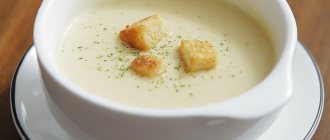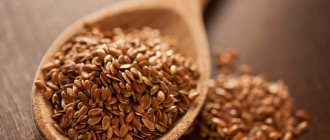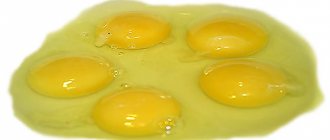© lenkaprusova — stock.adobe.com
Share:
Yogurt is a tasty and healthy fermented milk product made from milk and sourdough. Systematic consumption of the drink helps to normalize the gastrointestinal tract, strengthen the immune system and improve overall well-being. Homemade yogurt is a 100% natural product. It promotes weight loss, normalizes digestion, and improves skin condition. Yogurt contains a large amount of minerals, active living bacteria, vitamins and fatty acids necessary for the body to function properly.
Composition and history of origin
Yogurt is not only tasty and healthy, but also a fairly popular fermented milk product, which is based on natural milk and various starter bacteria. Depending on the type of yogurt, its manufacturer and fat content, the composition and its taste may vary.
Bulgaria is considered to be the birthplace of yogurt. It is in this country that the composition of the product is strictly regulated. Therefore, most of the products that are called yogurt in our country could not be called that in Bulgaria.
Few people know, but yogurt reached its peak of popularity only in the 20th century, and it could only be purchased in pharmacies in small glass bottles. Over time, the product began to gain more and more popularity, and with it production developed.
Thanks to this, today it can be purchased at any grocery store, in any form, with any additives and at a very low cost. Many people use this product daily. Some for the purpose of improving intestinal function, and others simply because of the pleasant taste and relatively safe composition.
The main components may vary, depending on the type - drinkable or edible, fat content and additional components. Usually these are vegetables or fruits, sugar and so on.
In fact, the calorie content also depends on the composition. Therefore, when wondering how many calories are in yogurt, first of all pay attention to the composition, fat content and additional components.
How many calories are in yogurt with additives?
The taste of natural yogurt is unusual for those who are accustomed to sweet “yogurts” from store shelves; it is more reminiscent of sour cream, Varenets or cream cheese. Natural yogurt is not sweet, which explains its low popularity. Tastier (more precisely, sweeter), but also higher in calories, is this fermented milk product with various flavoring additives. It is less healthy than natural - it contains added flavors, dyes, sugar and, of course, preservatives. The calorie content in this yogurt is 1.5-2 times higher than in natural yogurt.
What are the benefits of yoghurt?
Oddly enough, today there is a lot of disagreement among scientists, nutritionists and doctors about the usefulness of this product. Some are of the opinion that this is a great way to remove the feeling of hunger and saturate your body with useful elements. Others believe that modern yoghurts consist of only chemicals, and therefore will bring little benefit to the human body.
However, there are still several truly proven facts about the benefits of the product:
- has a beneficial effect on the intestinal microflora and improves its functionality;
- strengthens human immunity with regular use;
- promotes faster absorption of nutrients by the body;
- is an excellent remedy for the prevention of fungal infections;
- protection against serious pathologies of the colon, including cancer;
- contains a lot of calcium and protein;
- normalizes blood cholesterol levels;
- helps improve mood and the condition of the body as a whole.
But this benefit will only be if you choose a truly high-quality product without any chemical compounds, additives, dyes or flavor enhancers.
The safest, healthiest and lowest-calorie option is homemade yogurt made with high-quality milk and sourdough. Its calorie content is minimal - 59 kcal (100 g).
If you decide to use this product for the purpose of losing weight, then nutritionists advise buying it with a minimum amount of fat - 1.5%. Sometimes on store shelves you can even see low-fat yogurt, which contains 0% fat. This option is the safest for the figure, but, as practice shows, its taste is not always to the liking of consumers.
This type of fermented milk product is simply irreplaceable during fasting days and during diets. How many calories are in yogurt, and which option is the lowest calorie?
Calorie content of yogurt
The calorie content of yogurt per 100 grams may vary depending on its fat content and composition. Low-fat yoghurts (0% fat) have the lowest amount of calories. They contain about 51 kcal. A product containing 1.5% fat contains 57 kcal, and with 2% - approximately 60 kcal.
Fruit yogurts usually have about 90 kcal. Thus, the higher the fat content, the higher the calorie content. At 2.5% fat content, the energy value will be at least 76 kilocalories, and at 3.5% - 88.
In addition to thick edible yoghurts, today they also produce drinking yoghurts, the average calorie content of which is about 70 units.
These indicators may also vary depending on the manufacturer producing this fermented milk.
Comparison of the best products
Based on the table below, conclusions can be drawn regarding the ingredient composition and other important characteristics of all participants in the rating.
| Model | Fat content, g | Calorie content, kcal | Weight, g | Compound | Price, rub |
| "Activia" | 2.4 | 57 | 290 | normalized milk, reconstituted milk from milk powder, yoghurt starter, bifidobacteria ActiRegularis; may contain traces of gluten | from 45 |
| "EPICA" | 2.9 | 65 | 290 | skim milk, cream, milk protein, yoghurt starter | 53-68 |
| "Valio" | 0.4 | 32 | 330 | skim milk, whole milk, milk protein, yogurt starter | 51-61 |
| "The Cheburashkin Brothers" | 0.5 | 35 | 330 | normalized pasteurized milk, starter | from 78 |
| "Ruzskoye Milk" | 2.5 | 51 | 330 | whole milk, skim milk, yogurt starter | from 93 |
Yogurt - calorie content of different manufacturers
Today it is possible to choose not only the flavor you like best, but also the manufacturer. According to taste preferences, having studied the composition and amount of fat, you can purchase a suitable option from a wide range. Let's take a closer look.
How many calories are in Activia yogurt?
Activia today is one of the most popular yogurts, which is produced by the manufacturer Danone in different variations. These include drinking yogurts, edible ones, desserts with oatmeal, and so on. The calorie content of Activia yogurt differs depending on the type and composition. So, a product with cereals and a fat content of 2.2% contains about 82 kcal. Regular Activia yogurt without any additives or flavors has 75 kilocalories.
In addition to its popularity, there is also a considerable amount of controversy surrounding this fermented milk product. Some nutritionists advise using it instead of usual snacks, and some argue that the composition of the product is not so natural. In addition, many buyers refuse this option because its shelf life is more than a week, which indicates the presence of additional preservatives in the composition. Of course, whether to buy it or not is everyone’s business, but first it is recommended to study the composition and analyze all the useful and less useful components.
How many calories are in Miracle Yogurt?
These fermented milk products appeared on store shelves not so long ago - in the late 90s, but quickly gained popularity. The assortment allows you to choose a fermented milk product according to your taste, and the price is also pleasing. On average, the calorie content of Miracle yoghurts is 70-100 kilocalories per 100 grams, depending on the variety and composition.
Nutritionists advise consuming fermented milk every day both in childhood and in adulthood in order to improve the condition of the body as a whole. This is a great option for breakfasts, quick snacks and instead of desserts.
Danissimo calories
Danissimo is also produced by the manufacturer Danone, so the range is more than just diverse. This manufacturer has both adult and children's products; it positions itself as a manufacturer of natural, healthy products. 100 grams of Danissimo contains approximately 100-150 kilocalories, which is far from the lowest figure.
Other brands
On store shelves there are still many different fermented milk products from various manufacturers. Here are the most popular foods and their calorie content:
- Sloboda - on average 80-100 kilocalories;
- Campina - from 52 to 94 kcal, which is influenced by the fat content of the selected products;
- Bio Balance - with a fat content of 1% - 41 kcal, with cereals the product has about 75 kilocalories per 100 grams.
When choosing, be sure to pay attention not only to the expiration date, but also to the composition.
The fewer additional ingredients there are, the healthier the product will be for your health and figure.
Yogurt or kefir – which is better to choose?
Due to the wide range available today, it is quite difficult to make the right choice in favor of one option or another. Natural kefir, like yogurt, has many beneficial properties and is an excellent preventative and health remedy. This is a win-win option, suitable for dietary nutrition. It is also often used during periods of rehabilitation after illnesses, operations, etc.
Of course, in terms of the number of kcal, kefir wins significantly, since it contains only 30-55 kcal, while in yogurt this figure can range from 60 to 150 kcal. In addition, yogurt, which contains various additives, is less beneficial for the digestive system, figure, and the body as a whole.
It is also worth noting here that fermented milk products will only be truly healthy if they are high-quality and natural. Therefore, nutritionists and doctors advise making it yourself, especially since preparing yogurt at home is not at all difficult, and the price for such an absolutely natural product will be minimal.
Proper nutrition with yogurt on a diet
What is the most useful yogurt diet for weight loss?
The main requirement: do not sit on a mono-diet that involves eating exclusively yogurt for several days. Yes, in terms of the number of calories, your diet will be dietary, but the risk of causing irreparable damage to your health is very high. However, this warning applies to any mono-diet.
You can safely add yoghurts to other dietary products to improve their taste.
How to make yogurt at home?
Today there is a special device called a yogurt maker that will help you prepare a very tasty and healthy dish at home. But if you don’t have one, you can completely do without it.
For preparation you will need the following ingredients:
- two liters of fresh, high-quality milk;
- so-called belly yogurt or starter culture, which can be purchased at a store or pharmacy;
- pot.
How to cook? If you don’t have a special device, you can use a regular enamel pan, but in no case an aluminum one. In it, the milk is brought to a boil, after which it must be allowed to cool under the lid to a temperature of approximately 45 degrees. In another pan you need to sterilize the milk and mix it with live yogurt. Next, the mixture is thoroughly mixed.
The resulting mass should be wrapped in a towel or blanket and left for 8 hours. After the manipulations have been completed, the yogurt can be poured into pre-sterilized jars and placed in the refrigerator. This natural, home-cooked product must be eaten within five days of preparation, otherwise it will spoil.
Dietary nutrition requires a lot of effort and patience, and not everyone succeeds in losing weight with the help of diets. Yogurt is just the product that will have a beneficial effect not only on your figure, but also on the condition of the body as a whole. The main thing is to choose it correctly or prepare it yourself.











